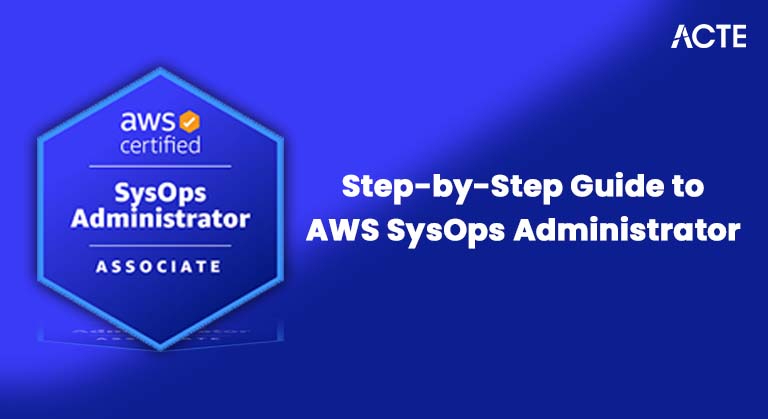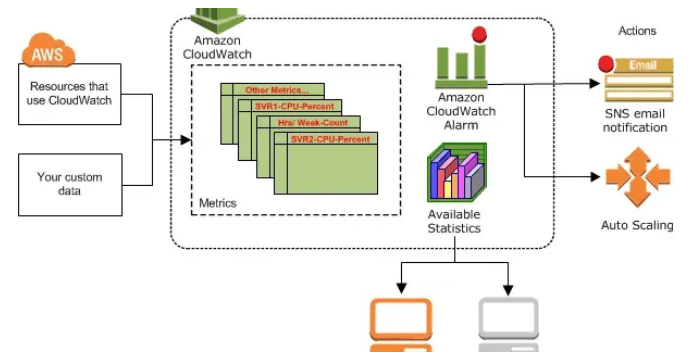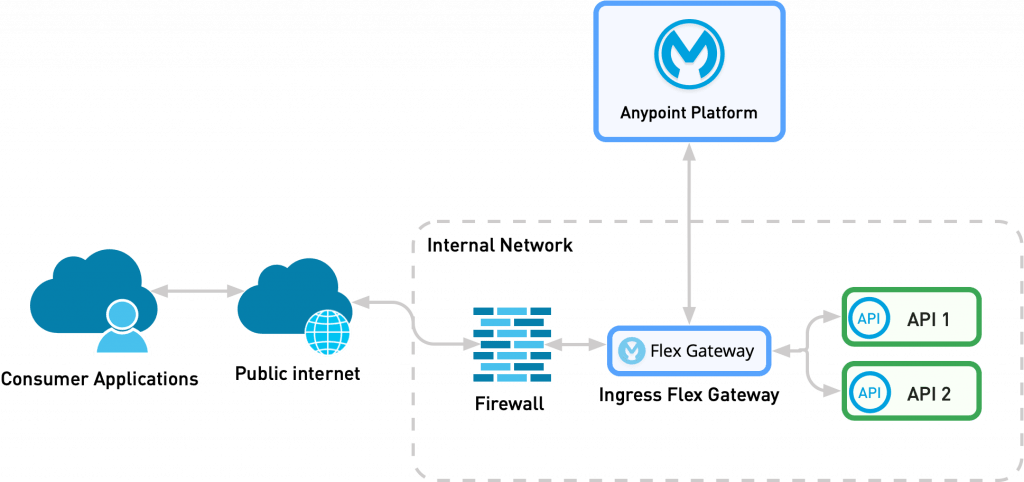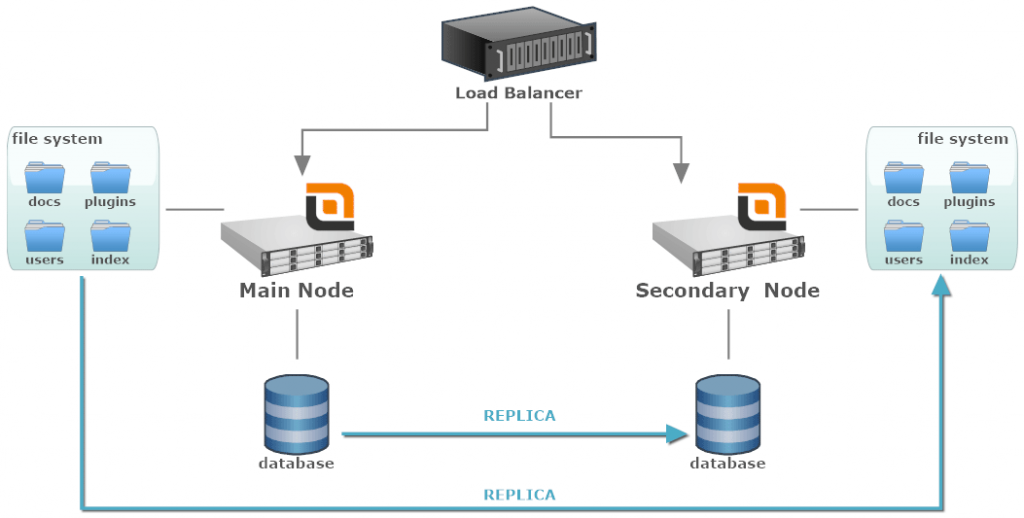
- Overview of AWS SysOps Administrator Role
- Key Responsibilities of a SysOps Administrator
- AWS Certified SysOps Administrator Exam Details
- AWS Security and Compliance Essentials
- Key Exam Domains and Topics
- AWS Monitoring and Performance Optimization
- Managing AWS Storage and Databases
- High Availability and Disaster Recovery Strategies
- Best Study Resources and Preparation Tips
- Hands-on Labs and Practical Experience
- Career Opportunities for AWS SysOps Administrators
- Conclusion
Overview of AWS SysOps Administrator Role
The AWS SysOps Administrator is a key role in the AWS ecosystem, focusing on the operational aspects of AWS environments. A SysOps Administrator manages and operates systems and applications within the AWS CloudWatch infrastructure. This includes provisioning resources, monitoring system performance, handling storage, ensuring security, implementing high availability, and troubleshooting issues as they arise. The role requires technical skills, AWS knowledge, and operational expertise.SysOps Administrators work closely with AWS solutions architects, developers, and other teams to ensure systems run efficiently, securely, and cost-effectively. They are critical in optimizing performance, automating manual tasks, and providing continuous support for day-to-day operations within AWS.
Key Responsibilities of a SysOps Administrator
- Monitoring and Reporting: Set up and monitor AWS CloudWatch to track system health, application performance, and resource utilization.Use CloudTrail to log and audit AWS environment calls for security and troubleshooting purposes.Generate and review reports on system performance and operational health.
- Backup and Recovery: Implement AWS backup solutions for EC2 instances, RDS databases, and other critical systems using services like AWS Backup and AWS S3.Develop and test disaster recovery (DR) strategies, ensuring minimal downtime in the event of system failures.
- Security and Compliance: Apply security patches to AWS CloudWatch resources, ensure systems meet regulatory compliance standards, and implement security best practices.Manage access control using IAM (Identity and Access Management) policies and roles.Enable encryption for data at rest and in transit using services like AWS KMS (Key Management Service) and CloudHSM.
- Automation and Cost Optimization:Use AWS Backup tools like CloudFormation, Systems Manager, and Elastic Beanstalk to automate and optimize system deployment, configuration, and management.Implement cost-saving measures, such as leveraging Spot Instances, Reserved Instances, and EC2 Auto Scaling.
- Networking and High Availability: Design and maintain high-availability architectures across multiple availability zones (AZs) and regions.Ensure scalability by implementing auto-scaling groups, load balancers (Elastic Load Balancing), and failover strategies.
- Troubleshooting and Performance Tuning: Diagnose performance issues, bottlenecks, and security vulnerabilities in AWS-hosted applications.Utilize AWS tools like AWS X-Ray and CloudWatch Logs to trace and debug issues within applications.
- Collaboration: Work closely with the development and architecture teams to improve the reliability and scalability of AWS-based applications.
AWS Certified SysOps Administrator Exam Details
The AWS Certified SysOps Administrator Associate is an entry-level certification designed for individuals with experience managing AWS Backup workloads. This certification validates the skills required to deploy, manage, and operate systems on AWS CloudWatch. To become certified, candidates must pass the SOA-C02 exam, which is intended for professionals with at least one year of hands-on experience in the SysOps role.
- Exam Code: SOA-C02
- Exam Duration: 130 minutes
- Total Questions: 65 multiple-choice and multiple-response questions
- Passing Score: 720 out of 1000
- Exam Format: Multiple-choice questions (MCQs).
- Exam Cost: $150 (USD)
AWS Security and Compliance Essentials
AWS SysOps Administrators are responsible for managing the security of AWS workloads. Key security and compliance essentials include:IAM (Identity and Access Management): Managing user access and permissions within the AWS environment using roles, policies, and groups.AWS Shield and AWS WAF: Protecting AWS applications against DDoS attacks and setting up a web application firewall for additional security.AWS Config: Tracking changes to AWS resources and ensuring Compliance with security and operational policies.Encryption: Ensuring sensitive data is encrypted at rest (using services like Amazon S3 and Amazon RDS) and in transit (SSL/TLS).AWS Key Management Service (KMS): Managing encryption keys for secure access to your AWS resources.
Key Exam Domains and Topics
The AWS Certified SysOps Administrator – Associate exam covers various operational topics. The exam is divided into the following main domains:
- Monitoring, Reporting, and Automation (20%) Implementing and managing monitoring solutions using AWS CloudWatch and CloudTrail. Automating operational tasks using AWS Systems Manager, Lambda, and CloudFormation. Creating and managing CloudWatch Alarms, Logs, and Dashboards.
- High Availability, Backup, and Recovery (20%) Designing and implementing high-availability solutions using Amazon EC2 , Elastic Load Balancing, Auto Scaling, and Route 53. Implementing backup solutions using AWS Backup and S3 for storing backups. Developing and testing disaster recovery strategies.
- Security and Compliance (20%) Implementing AWS security best practices using IAM, CloudTrail, AWS Config, and other security services. Ensuring Compliance with standards like PCI DSS, HIPAA, and GDPR. Managing security patches for EC2 and RDS instances.
- Deployment, Provisioning, and Automation (15%) Provisioning and managing resources using CloudFormation and Elastic Beanstalk. Automating environment provisioning using Infrastructure as Code (IaC). Setting up and managing Amazon EC2 instances and Amazon RDS databases.
- Cost and Performance Optimization (15%) Monitoring and optimizing costs using AWS Cost Explorer, Trusted Advisor, and AWS Budgets. Managing and optimizing the performance of Amazon EC2 instances, databases, and storage. Implementing cost-saving strategies such as Spot Instances and Reserved Instances.
- Incident and Event Response (10%) Managing incidents and events using AWS services like CloudWatch, EventBridge, and SNS. Troubleshooting and resolving operational issues related to AWS resources.
AWS Monitoring and Performance Optimization
AWS SysOps Administrators are expected to monitor and optimize the performance of cloud resources. This includes using:Amazon CloudWatch: To monitor the health and performance of AWS resources like EC2 instances, RDS databases, and Lambda functions. CloudWatch allows administrators to set alarms for specific thresholds and take automated actions.AWS X-Ray: Tracing requests as they travel through applications, helping identify performance bottlenecks and pinpoint root causes.AWS Trusted Advisor: To recommend cost optimization, performance improvements, security enhancements, and fault tolerance.

Managing AWS Storage and Databases
Responsibilities include:
- Amazon S3: Storing and managing data, implementing versioning and lifecycle policies, and ensuring the security of S3 buckets.
- Amazon RDS: Managing relational databases like MySQL, PostgreSQL, and Oracle, including automated backups, snapshots, and scaling.
- Amazon EFS: Configuring scalable file storage for workloads requiring shared access.
- Amazon DynamoDB: Managing NoSQL databases, including scaling, monitoring, and security.

High Availability and Disaster Recovery Strategies
High availability and disaster recovery are fundamental concepts for SysOps Administrators. Strategies include:
- Multi-AZ Deployments: Amazon EC2 and Amazon RDS deploy across multiple availability zones to ensure high availability.
- Amazon Route 53: Configuring DNS failover for routing traffic to healthy endpoints during failures.
- Backup and Recovery: Using services like Amazon S3, Glacier, and RDS snapshots for backup and disaster recovery.
Hands-on Labs and Practical Experience
Hands-on labs are essential for gaining practical experience managing AWS resources. Platforms like AWS Skill Builder and Qwiklabs offer interactive labs and scenarios for practicing with real AWS services. These platforms provide an immersive learning environment where users can work with actual AWS tools and services in real-time, simulating the challenges faced in day-to-day cloud operations. By completing these labs, learners can build a deeper understanding of how to configure, manage, and troubleshoot AWS environments, which is crucial for success in AWS certification exams and real-world cloud deployments.
In addition to interactive labs, these platforms offer a variety of courses and learning paths tailored to specific AWS certifications, such as the AWS Certified SysOps Administrator. This structured approach allows learners to progress at their own pace, while gaining exposure to a wide range of AWS services and use cases. The hands-on experience gained through these labs helps bridge the gap between theoretical knowledge and practical skills, giving learners the confidence to tackle real-world challenges. By regularly practicing in these environments, you not only prepare for exams but also enhance your ability to effectively manage and optimize AWS infrastructure in a professional setting.

Tips for Passing the DP-200 Exam on the First Attempt
- Understand the exam objectives Review Microsoft’s exam objectives to ensure a solid understanding of all domains.
- Practice with hands-on labs Set up an Azure environment and work with the tools and services you’ll be tested on.
- Take practice exams. Practice exams will help you identify your strengths and weaknesses and get used to the exam format.
- Use multiple study resources Combine various study resources, including official documentation, online courses, and books, to cover all exam topics thoroughly.
- Review key Azure services Make sure you understand the key Azure services covered in the exam, such as Azure SQL Database, Azure Data Lake, and Azure Synapse Analytics.
Best Study Resources and Preparation Tips
To prepare for the AWS Certified SysOps Administrator exam, candidates should make use of various study resources:
- AWS Training and Certification: AWS offers free and paid training resources, including digital training, classroom training, and hands-on labs.
- AWS Whitepapers: Study key AWS whitepapers on security, architecture best practices, and operational strategies.
- AWS Documentation: The official AWS documentation explains each AWS service and how to use them.
- Practice Exams: Practice exams are available to simulate the actual test environment and help candidates identify areas of weakness.
Career Opportunities for AWS SysOps Administrators
AWS SysOps Administrators have a variety of career opportunities, AWS Cloud Engineer: Focused on building and managing AWS infrastructure.AWS Solutions Architect Designing complex AWS architectures for organizations.DevOps Engineer Working with development and operations teams to automate deployments and optimize cloud environments.As of 2023, the salary for AWS SysOps Administrators typically ranges from $85,000 to $120,000 annually, depending on experience, location, and certifications. With the increasing adoption of AWS, job opportunities for SysOps Administrators are expected to grow.
Conclusion
The AWS Certified SysOps Administrator role is vital for managing and optimizing AWS environments. To succeed in this role, individuals must have strong AWS knowledge, hands-on experience, and the ability to troubleshoot, monitor, and secure cloud systems. Preparation for the SOA-C02 exam requires a blend of theoretical study and practical experience, with ample opportunities for career growth in the AWS ecosystem.





